Lt. Gen. William J. Hartman, deputy commander of U.S. Cyber Command, meets with members of the UW neighborhood, together with Gurindar Sohi (middle left), a UW professor {of electrical} and pc engineering and pc sciences. Photograph: Bryce Richter
The College of Wisconsin–Madison performs a number one position as a analysis and training associate for nationwide cybersecurity. It strengthened this dedication not too long ago by welcoming to campus a delegation from the USA Cyber Command (USCYBERCOM), which is answerable for the Division of Protection’s our on-line world capabilities.
On Nov. 21, Lt. Gen. William J. Hartman, deputy commander of USCYBERCOM, and his colleagues at federal intelligence businesses visited analysis labs throughout campus earlier than attending a day of occasions meant to focus on UW–Madison’s cyber partnership, strengths in analysis and skill to arrange college students for the workforce. This included a USCYBERCOM Tech Discuss that includes UW–Madison school members researching superior communication applied sciences and different cyber-related areas.
It was the first-ever USCYBERCOM Tech Discuss hosted by an instructional establishment. UW–Madison is a founding member of USCYBERCOM’s Educational Engagement Community — a gaggle of upper training establishments with diploma packages and analysis portfolios that align with the army command’s mission. Earlier this yr, the college was additionally designated as a Nationwide Heart of Educational Excellence in Cyber Analysis by the Nationwide Safety Company.
For extra details about UW–Madison’s Cyber Applications and Designations, go to .
Listed here are highlights from the go to:
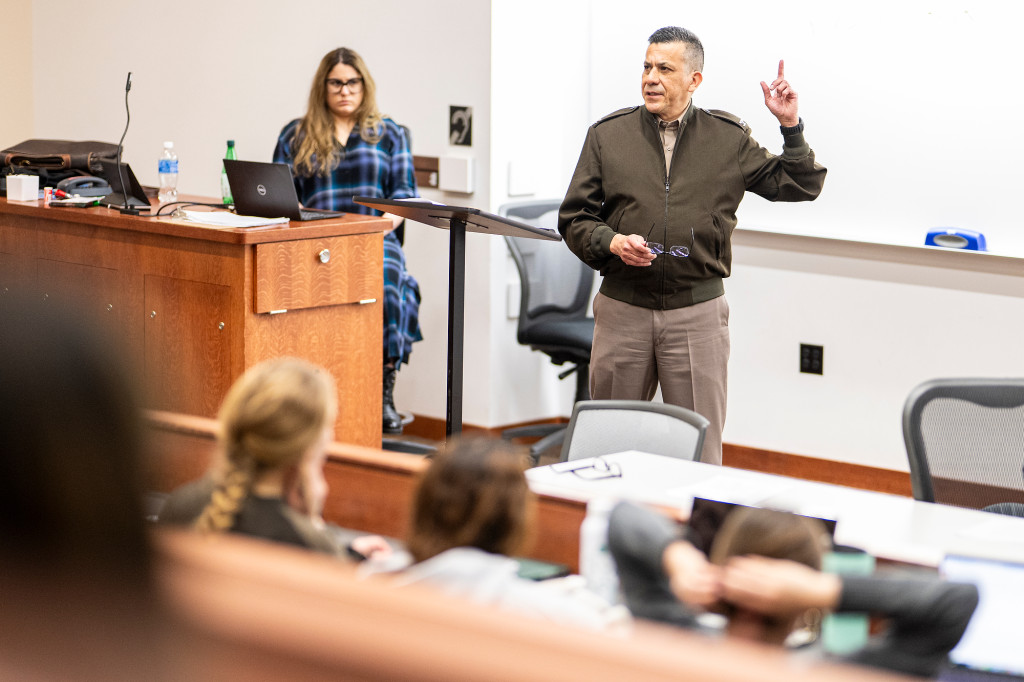
The day earlier than the official go to started, Col. Raul Rodríguez-Medellin (middle), deputy director of the Workplace of Educational Engagements at USCYBERCOM and a UW–Madison alumnus, visited a public coverage class within the La Follette College of Public Affairs.
Photograph by: Bryce Richter
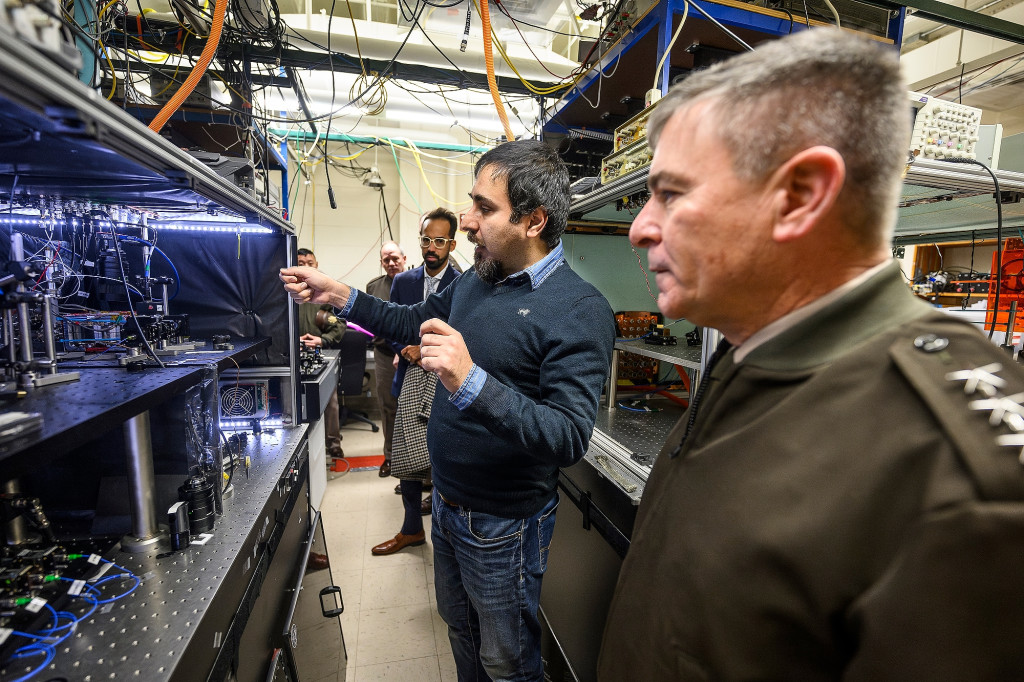
Members of the federal delegation began their go to by assembly with researchers of their laboratories within the Division of Physics and the School of Engineering to find out about their work on quantum computing, cybersecurity and different areas of curiosity to USCYBERCOM. At Chamberlin Corridor, physicist Akbar Safari (middle) confirmed Lt. Gen. William J. Hartman and colleagues a quantum community experiment. The community holds promise for purposes in distant quantum sensing and quantum communication, which may enhance intelligence gathering, surveillance and safe communication.
Photograph by: Althea Dotzour
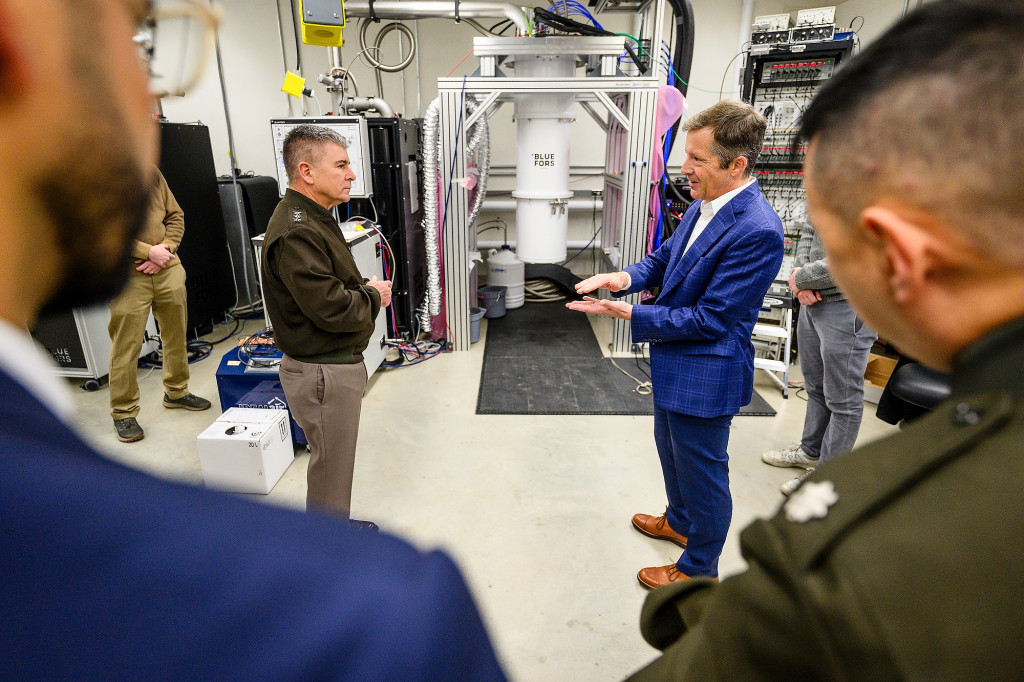
The delegation additionally discovered in regards to the required circumstances for quantum computing — particularly, extraordinarily low temperatures. Physics professor Mark Eriksson (proper) described to Hartman why it’s important to function silicon-based qubits — the fundamental unit of quantum data — at temperatures of 0.1 Kelvin. The machine within the background is a dilution fridge that’s a part of UW’s Q-NEXT quantum middle, which is funded by the U.S. Division of Power.
Photograph by: Althea Dotzour
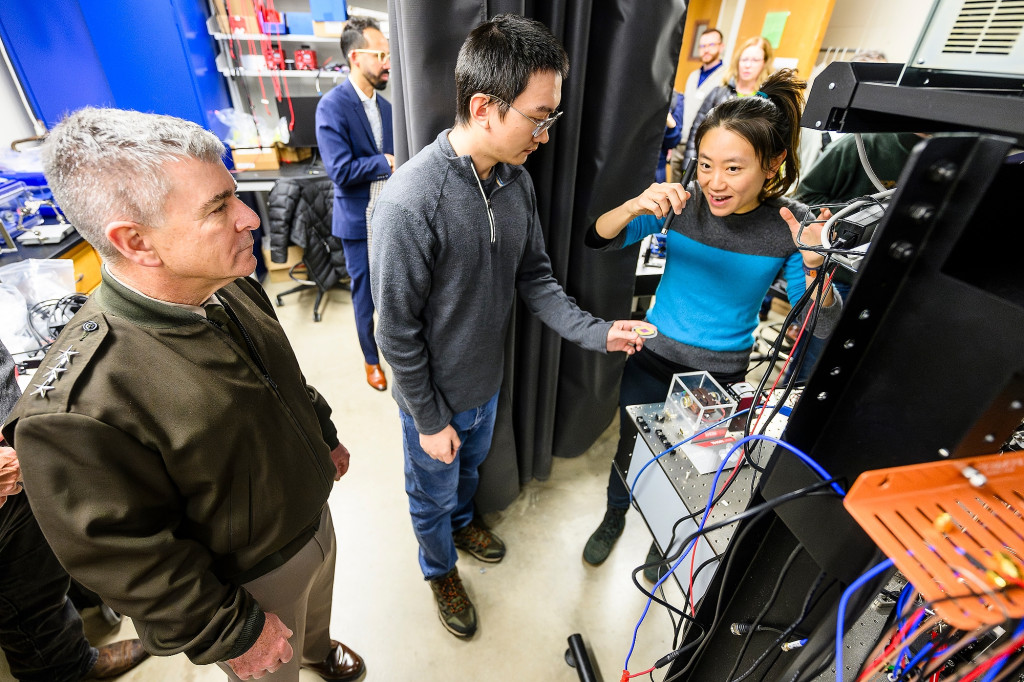
On the School of Engineering, Jennifer Choy (proper), a professor {of electrical} and pc engineering, and doctoral pupil Xuting Yang (middle) demonstrated how a metallized grating chip on silicon can be utilized instead of free-space optics to chill and lure atoms to facilitate quantum purposes.
Photograph by: Althea Dotzour
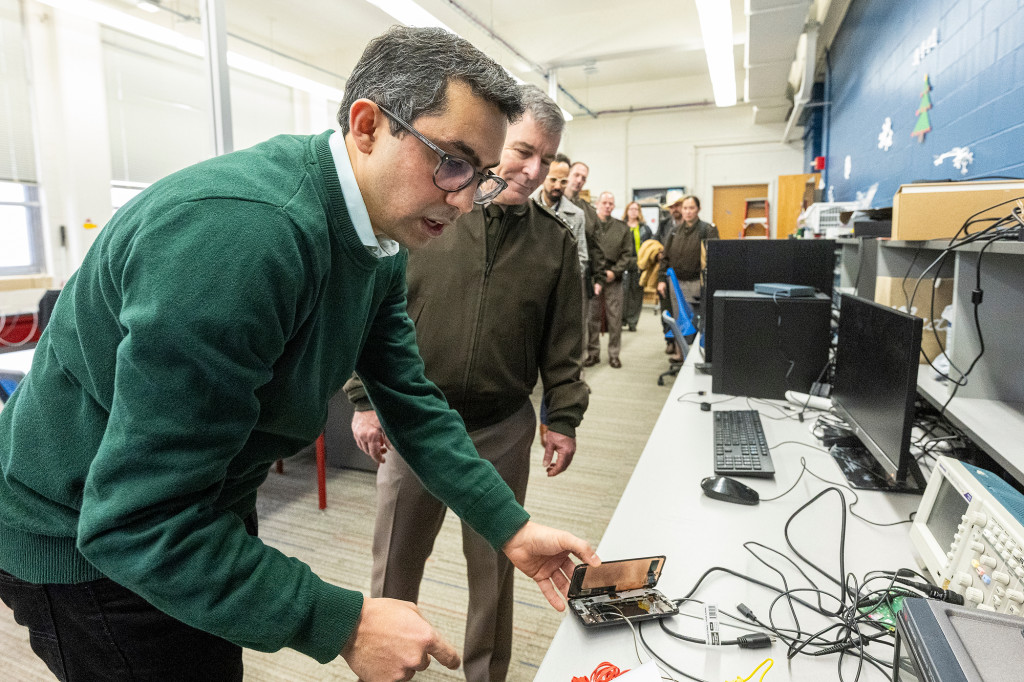
Kassem Fawaz, a professor {of electrical} and pc engineering, demonstrated his lab’s work associated to digital privateness and smartphone apps. Fawaz and his colleagues have reverse engineered the TikTok and Instagram smartphone apps to uncover what varieties of data they retailer about customers primarily based on uploaded photographs. They’ve additionally developed a non-digital technique for spoofing voice recognition software program utilizing 3D-printed nylon pipes.
Photograph by: Bryce Richter
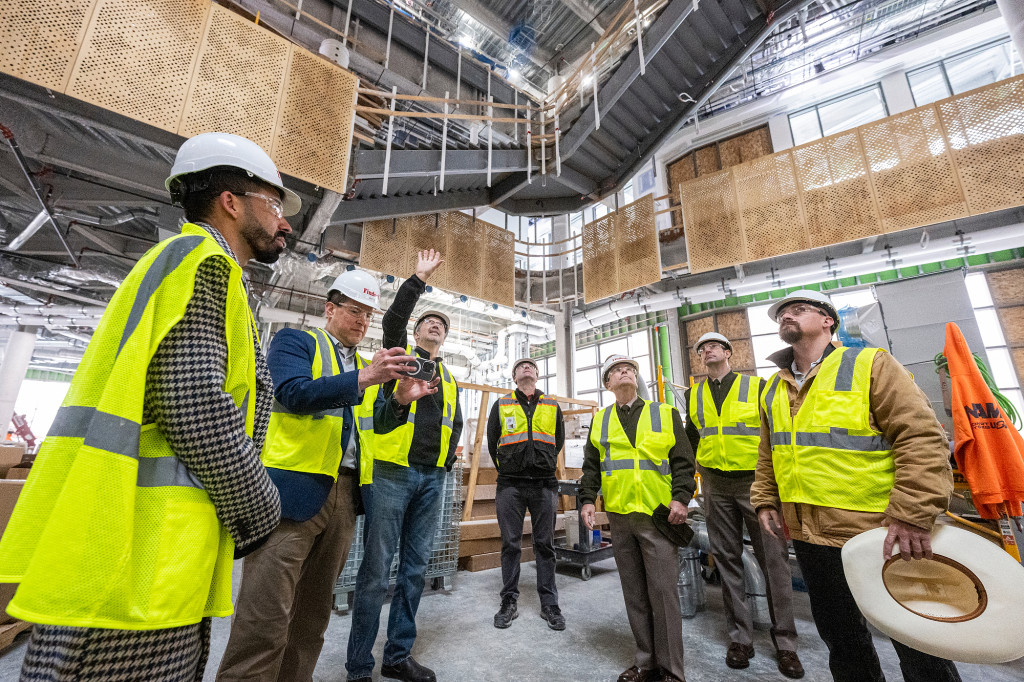
The delegation additionally obtained a behind-the-scenes tour of Morgridge Corridor, the longer term dwelling of the College of Laptop, Knowledge & Info Sciences, which is about to open in summer season 2025.
Photograph by: Bryce Richter
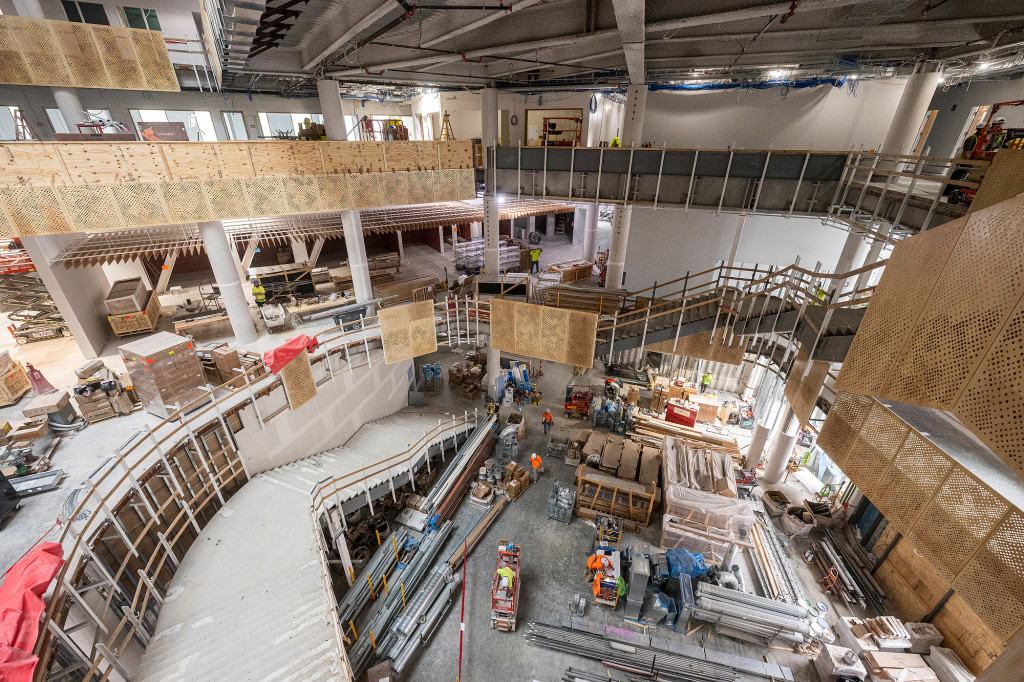
The state-of-the-art constructing will enable UW to proceed attracting high school and college students to its more and more fashionable packages in pc science, knowledge science and associated fields.
Photograph by: Bryce Richter
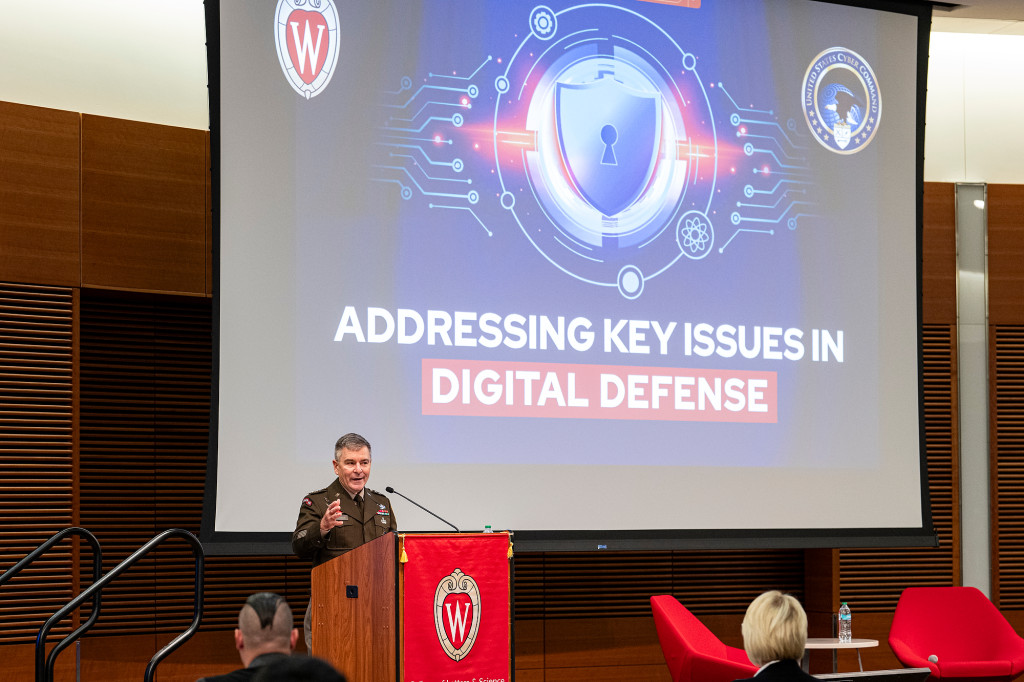
Following the excursions, Hartman delivered a keynote handle to UW college students, school and researchers on the DeLuca Discussion board, during which he made a case for persevering with to bolster relationships between USCYBERCOM and high analysis universities like UW–Madison. “We’re not solely constructing partnerships — we’re constructing the following era of cyber leaders,” Hartman mentioned.
Photograph by: Bryce Richter
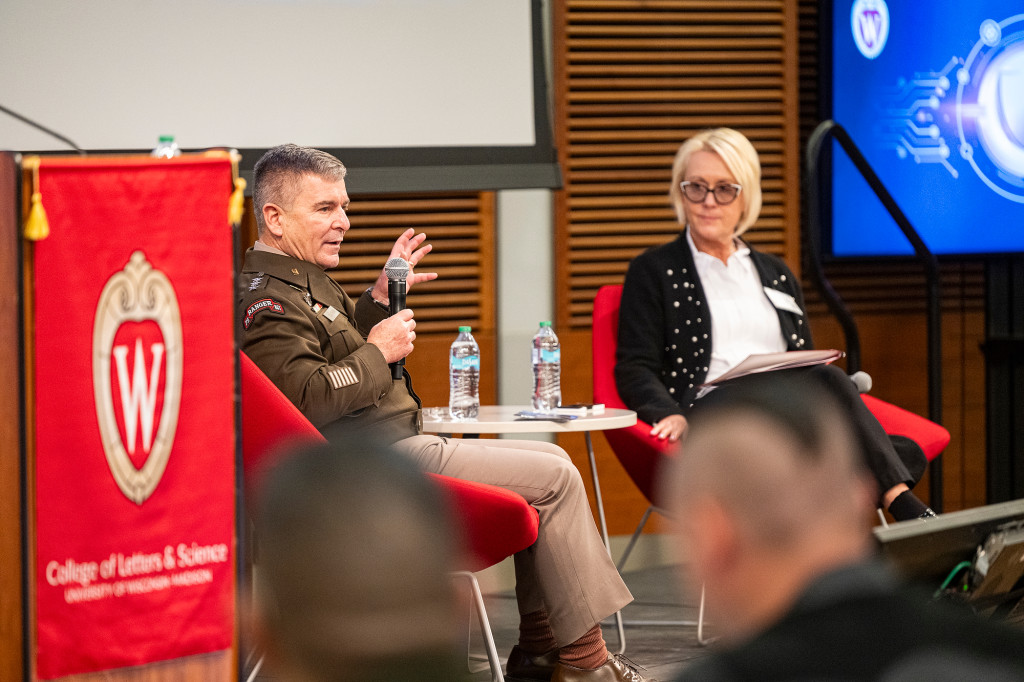
Later, in a fireplace chat occasion, Hartman and Vice Chancellor for Analysis Dorota Grejner-Brzezinska mentioned the important position that tutorial establishments like UW–Madison play in advancing cyber capabilities, creating new applied sciences and getting ready a succesful workforce. The dialog additionally touched on UW’s RISE-AI initiative, which is boosting the hiring of college who work on points associated to synthetic intelligence. AI will play an more and more necessary position in cyber protection, Hartman mentioned.
Photograph by: Bryce Richter
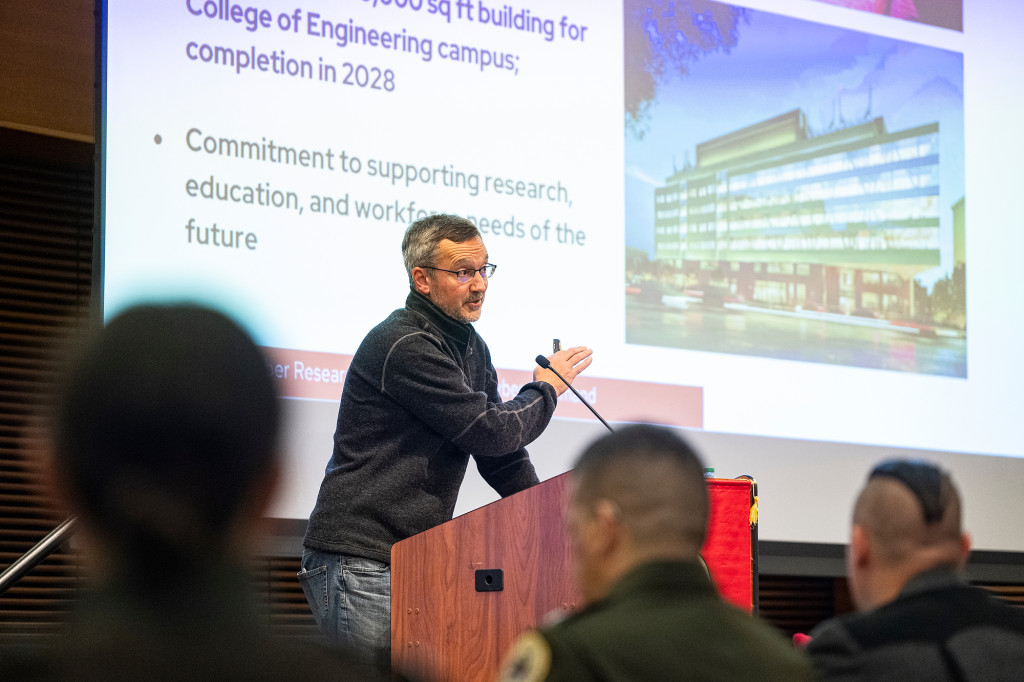
Remzi Arpaci-Dusseau, director of the College of Laptop, Knowledge & Info Sciences, kicked off the Tech Discuss collection. He underscored UW’s ongoing investments in cyber and high-tech fields, with the brand new development of Morgridge Corridor and the Philip A. Levy Engineering Heart.
Photograph by: Bryce Richter
See extra picture tales






























































